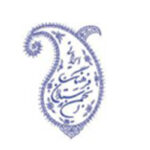Destruction of Bahá’í cemetery in Shiráz resumes

The Revolutionary Guard of Iran resumes its destruction of a Bahá’í cemetery in Shíráz. Photo: Bahá’í World News Service
The Bahá’í World News Service reported in early August that Iran’s Revolutionary Guard, a branch of the Iranian military, has resumed its destruction of a Bahá’í cemetery in Shíráz in order to make way for a sports and cultural complex. The Guards began destroying the cemetery – established in the 1920s –in late April, but halted the destruction after the international media reported on it, other governments expressed concern, and Iranians from all walks of life said they were outraged at the actions.
After pausing for several months, reports indicate that the Guards have removed human remains from some 30 to 50 of the 950 graves of Bahá’ís in the cemetery. In June, the Guards held a public celebration of the demolition’s progress at which the commander of the Revolutionary Guards of Fars Province gave a speech attacking the Bahá’í Faith as a “foul, perverse sect.”
Diane Ala’i, the representative of the Bahá’í International Community to the United Nations in Geneva, said that the action was “an attempt by the Guards to justify to an increasingly outraged Iranian public the desecration of the cemetery and the treatment of Bahá’ís generally.” She called on the government of Iran to put a stop to the desecration, and asked the international community to voice its concerns about this “outrageous development.”
Ms. Ala’i noted that members of the Shiraz Bahá’í community have pleaded with local authorities to enforce a permanent halt to the construction, offering a compromise in which the sports complex could be built on the site away from areas where Bahá’ís are buried, while the graveyard itself is turned into a green space.
The Bahá’ís have been told that local authorities have no control over the Revolutionary Guards, who acquired the land about three years ago.
Bahá’ís from the area expressed deep anguish about the situation. Sasha Eskandarian of Mississauga, Ont., whose deceased relatives, including her younger brother, are buried there, said that she was “paralyzed” and “devastated” by the news.
In an open letter to local authorities in May, a 50-year-old Bahá’í woman spoke of facing decades of oppression, capped now by the latest attack on a place where the bodies of her father, mother, and sister – who were all killed by the government in the 1980s – had been laid to rest.
She appealed to the authorities to “end this long-standing rancor and enmity.” “We are your countrymen, your fellow citizens, your neighbours, your family, and your relatives. We work for the dissemination of love; we adore affection and kindliness; and believe we all have a right to the life which God has bestowed upon us,” she wrote.
Category: Highlights, World News








